To Inflame the Civic Temper
I am rereading the essay “The Moral Equivalent of War” by William James. It, along with other sources, is deepening my resolve that now is a time for theatre artists to “go to war,” and that the first attack must be on the dehumanization of immigrants and refugees in this country and around the world.
In his essay, William James identifies historically that our human ancestors have bred aggression and the urge to fight, the urge to be in power into our bones. He argues that peace, in and of itself, could not breed it out of us in thousands of years. However, if examined more deeply, he also argues that this war-like need can be replaced with a system which satisfies the same type of call to arms as war does on a military level. In 1906 he stated:
Individuals …now feel this civic passion. It is only a question of blowing on the spark until the whole population gets incandescent, and on the ruins of the old morals of military honor, a stable system of morals of civic honor builds itself up. What the whole community comes to believe in grasps the individual as in a vise. The war-function has grasped us so far; but the constructive interests may some day seem no less imperative, and impose on the individual a hardly lighter burden.
James goes on to say about that burden that is “hardly lighter”:
that so many men, by mere accidents of birth and opportunity, should have a life of nothing else but toil and pain … this is capable of arousing indignation in reflective minds… It is but a question of time, of skillful propagandism, and of opinion-making men seizing historic opportunities… The only thing needed henceforward is to inflame the civic temper as past history has inflamed the military temper.
As far as I can see, we are now in the midst of that historic opportunity. And it is the obligation and responsibility of the theatre artist to do two things: 1) to do everything we can through community engaged work to rouse the indignation in reflective minds and 2) to skillfully use our art and talents as positive propaganda in order to expand the dialogue of our communities and shift opinion—to inflame the civic temper—on issues such as forced migration and refugees.
it is the obligation and responsibility of the theatre artist to … rouse the indignation in reflective minds and to … inflame the civic temper.
There is no doubt, when it comes to exploring social issues, that the list is never ending and there is much work to do in all areas. So why look first at the migration crisis? Because this crisis forces us to address our own humanity, our personal history, and connection. It demands the question of our ability to live together on this planet. And, because it results from so many other crises, it has no determined end. As reported in the Washington Post: “According to UNHCR, the UN's refugee agency, there are an unprecedented 65.3 million people around the world who have been forced from their homes—the largest such displacement ever measured by the organization. Of that overall figure, there are about 21.3 million people registered as refugees—that is, people who are in limbo outside the borders of their countries rather than internally displaced.” This is humanity’s new “normal” and, as a theatre artist and educator, I feel my obligation is to create opportunities to look deep into this horrific human narrative. And to bring others with me.
However, looking in and of itself is no longer enough. We now live in a world requiring activism.
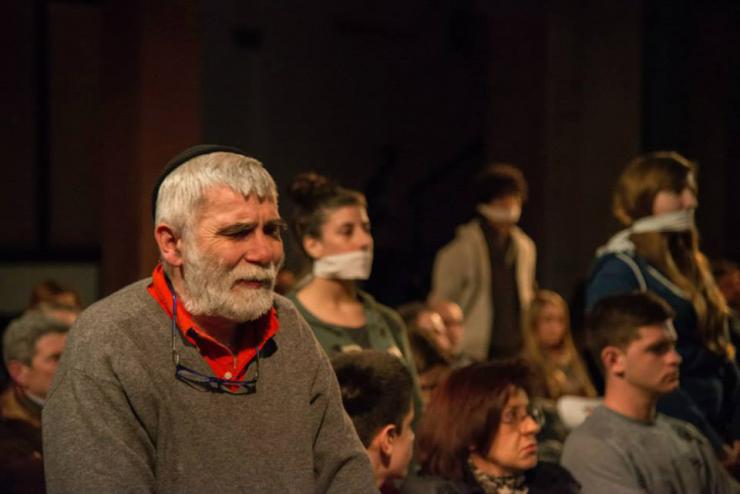
To Create a Good Future
Sakyong Mipham Rinpoche who leads the Shambhala community has said “We humans have come to a crossroads in our history: we can either destroy the world or create a good future.”
Of course those of us who are sane would choose to create a good future. However we see now that willing and having passion for it are not enough. We need systems, methods, and structures that are reliable, replicable, and deliverable in order to be effective warriors right now in this fight for equity and peace. We theatre artists need to begin celebrating the Tribe of Man, offering our services to our community members to help guide them and ourselves toward a better understanding of our human capacity. To help change the civic opinion away from manipulated fear and toward reasoned, empathetic action. We need to create a hunger for intellectual curiosity and creative exploration and expression.
The Global Theatre Project works to utilize the art of theatre to activate the experience of responsible and empathetic global citizenship explored and expressed in ways that create healthy community.
Over the last decade or so I’ve spent several years exploring programs and initiatives which experimented with various ways of relating to our audiences. In Florence, Italy, at Florence International Theatre Company, we offered productions with talkbacks, related pre-show events, conferences, and multi-disciplinary festivals to engage diverse communities with our work and messaging. This led to actively engaging individuals from the various communities in the heart of much of the creative work. But it wasn’t part of a directed strategy.
Following my return to the US, The Global Theatre Project was created as a response to my observation that Americans were not in touch with what was happening abroad and how they are effecting the lives of others around the globe. The idea was to create relationships and awareness. However that mission has evolved since we began. We no longer look at “them and us.” In recognizing we live in an interconnected world, we work to utilize the art of theatre to activate the experience of responsible and empathetic global citizenship explored and expressed in ways that create healthy community.
And that is where the question of a systematic strategy becomes vital and necessary in 2017. And where collaborative relationships with those outside of the arts, but deeply rooted in the community becomes imperative.
We have recently launched the initiative Creative Corps as an army of artist-activists who will work as Creative Leaders in their community. These artists will work not only to reflect the human condition, but along with that reflection offer alternatives for engagement with one another that will allow for healthy community to develop and thrive while recognizing its global connection. In order to do this effectively and with lasting impact, members of Creative Corps must involve organizations and institutions relevant to the project who hold important relationships with and information for the community.
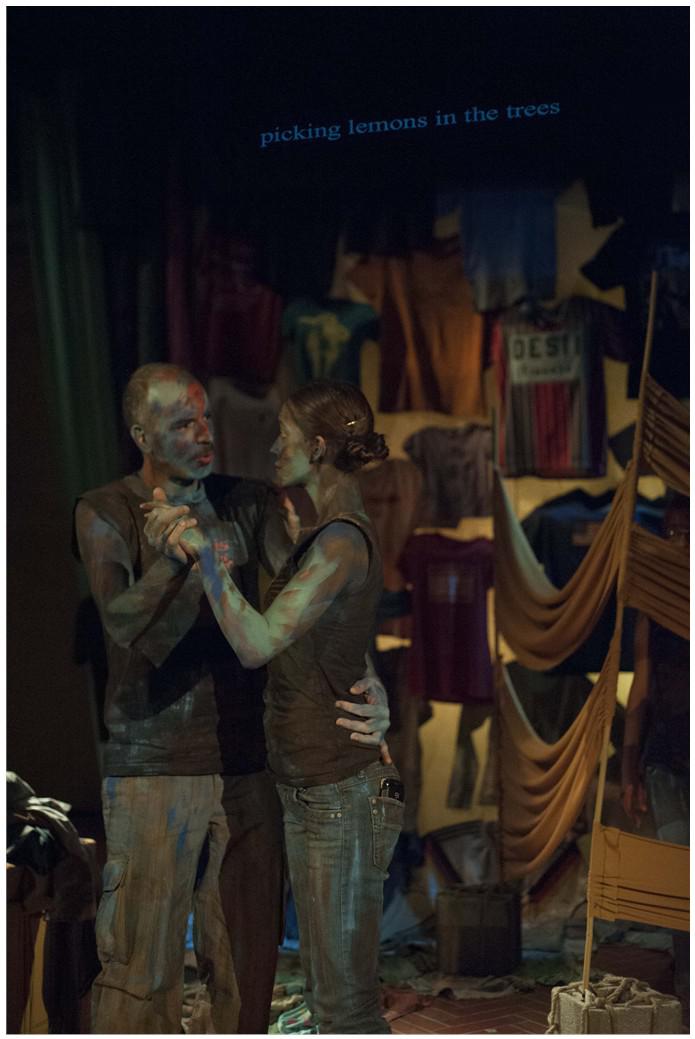
An Explorer’s Desire
Although in the future members of Creative Corps will be free to pursue their own issues of passion with their community, we are launching this initiative with An Explorer’s Desire in order to both address the urgent migration crisis and to help solidify the method and process of what a Creative Corps project specifically is; to begin this effort connecting members around the world in a single cause and action, and to be able to more accurately test and assess the methodology.
An Explorer’s Desire began as a collaborative production between the cities of Los Angeles and Florence, Italy. I was interested in making the statement that no one country has “an immigration problem” and wanted to create a piece that demonstrated:
“It does not matter where you stem from,
or matter it not where you stem too.
The heart of the matter is we are all one
in a democracy of exploration.”
—An Explorer’s Desire, Bianca Bagatourian
We began this work in 2012. Much has changed since then. But the play—an accumulation of short pieces written by playwrights from two continents—offers the perfect foundation for a community-engaged theatrical event responsive to the world in which we are currently living. To reemphasize, we are not looking in 2017 to create a strong piece of theatre on the refugee crisis. We are exploring how to create a strong theatrical event which folds in the community toward self-reflection, communal dialogue, and action. We want to know how this process can help to expand and deepen the level of social conversation and action within a community both during the rehearsal process and the presentation—while at the same time bringing aspects of collaboration and support that enhance individuals and the community itself.
From Passive Observer to Active Participant
When I was a young woman I remember lying in the grass doing my first relaxation exercise and feeling that I understood the majesty of being alive. I wanted to share that with others through my acting. However, what I believe now is that having this experience ourselves and sharing it is no longer the job at hand. The job at hand is to wake that experience up in others. To lead them toward their fullest capacity of mind, heart and soul in action. We need to move them from the role of passive observer to active participant. Both at our theatrical offerings and in our world. And we need to do that for the sake of our future.
Currently, we are facing an attack on the creative and intellectual mind. The idea that there is such a thing as “alternative facts” or “fake news”; the lack of the ability of our society to hold discussions in grey areas; the polarization of our media; leadership that is telling us not to question; large percentage of daily “interaction” occurring online; all this forms a collective mindset which threatens to limit our ability for empathetic, connected society. This coupled with the efforts of the Republicans to eliminate the NEA and the NEH demonstrates that a call to arms right now is that much more crucial.
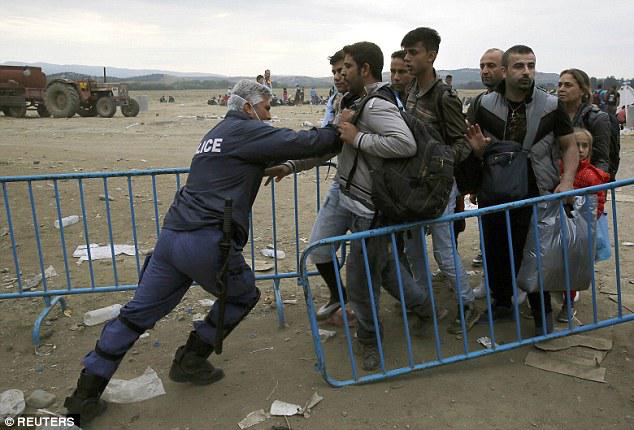
To that end, Creative Corps embraces the idea of the Whole Artist which we define as seven elements that encourage and nurture intellectually and creatively formed individuals, so that they can participate more fully in establishing healthy society. These seven elements are:
Curiosity (observation-research-inquiry)
Passion (intimate alignment to subject matter)
Sensual Development (five senses involvement)
Connectivity (to others in group, those touched by subject matter, planet)
Hunger (for remaining in the gray area of learning and questioning)
Knowledge (socially expansive, politically questioning)
Courage (facing truths learned and seeking a deeper view)
We encourage the Creative Corps members to push themselves more deeply into these seven elements as well as guide all others involved throughout a three-stepped process:
Immersion of self and fellow artists into the subject.
Engaging youth and community members actively in the inquiry process (including identification of collaborative organizations).
Creating a theatrical event which: is the highest expression of artistic exploration; encourages participation in the community and the audience; educates, develops empathy and compassion, and invokes and inspires healthy discussion; activates the Whole Artist elements and offers an action opportunity to be carried forward.
All of this is done and shared as publicly as possible.
A Call to Arms for Peace
Lewis Mumford who wrote a great deal about utopias and social structure said “it is out of the vivid patterns of the artist’s ecstasy that he draws men together and gives them the vision to shape their lives and the destiny of their community anew.”
It is time for the theatre artist to actively, methodically, and strategically work within our communities to help guide humanity toward the steps necessary for peaceful cohabitation; to look at the world as we have created it and, through the experience of collective inquiry and creativity demonstrate the world as it can be. And we must begin by looking at the refugee crisis. We must work toward humanizing every person on this planet by sharing their stories and connecting our own. Through a process that acknowledges that there is not a single human being without a migratory legacy we can say to one another:
“Have a good trip, good tidings.
Have a great future without boundaries.
Have a great future respecting all cultures.
Peace be with you, with me, with us.”
—An Explorer’s Desire, Simcha Jelinek

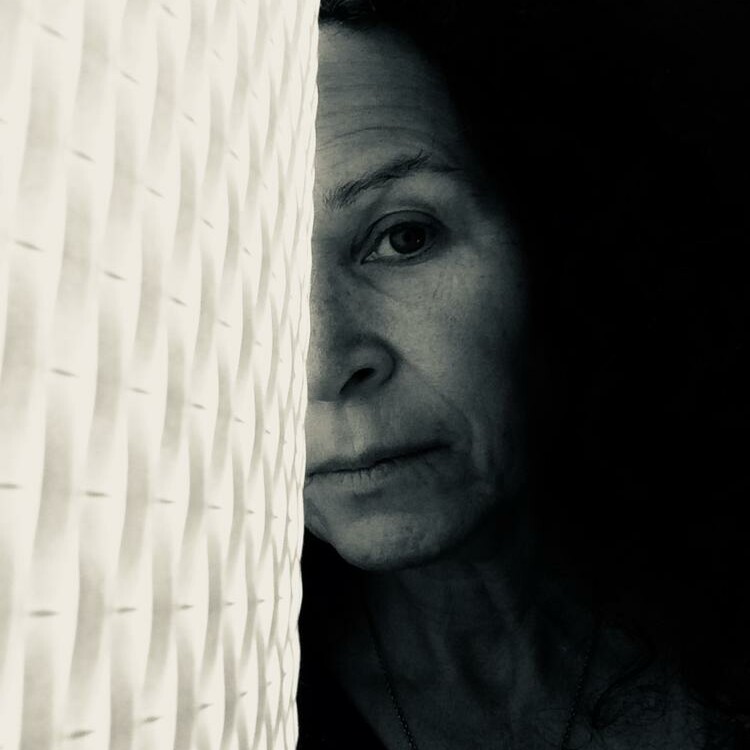
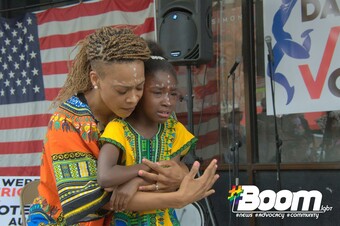

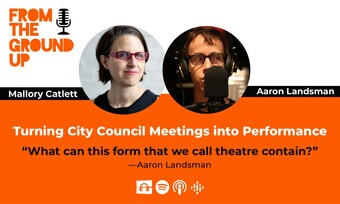



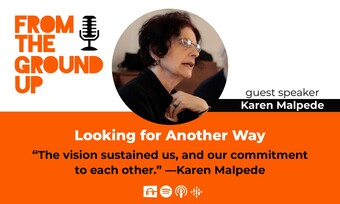

Comments
The article is just the start of the conversation—we want to know what you think about this subject, too! HowlRound is a space for knowledge-sharing, and we welcome spirited, thoughtful, and on-topic dialogue. Find our full comments policy here
I think the spirit of this article is wonderful in encouraging theatre people to get involved. Thank you for that, we need it as much as possible.
I do worry about the use of the word temper and the fiery language...especially as we see the reactionary nature of the "resistance" movements both from the right against Obama, and now on the left against Trump.
And Neal makes a good point about the Obama era as well, that is not truly acknowledged from the left, and that often the mainstream left doesn't like when the more radical left calls it to attention...so I do think we need to examine the starting point of the conversation from more of a "no one has it right" point of view.
In our theatre communities, especially independent ones, there already is much agreement on many political issues. So, I think that is very important in all this.
After seeing 9 plays this year at PEN International Play Festival at The Segal, and after going on tour last year with The Living Theatre in America and in Europe where our aim was specifically to work with refugee groups, artists and activists......I am more convinced than ever that the partisan nature of our political conversations, has to stop.
And the endless condemnation that each side throws at the other forsakes any real long term or permanent effort at helping to practically solve or even significantly help a crisis so nuanced such as the refugee crisis.
I think our two first steps are actually an open and constant criticism of leftist leadership not living up to what we want our moral standing to be worldwide. And two, to find ways to encourage this civic participation in such a way that we can reach across political divides here with the many people who would join a non partisan effort to help, if we reached out in the right ways.
I think, Brad, that William James intended the word 'temper' to be ones mood or attitude... not in the way we more commonly use it today (anger). I think his point, which interests me, is that we have innate aspects to our humanity that has (and still does) lean toward warring. But it is interesting to think that this - cultural habit - for lack of a better phrase - can be awakened out of us and that this passion can be transformed into a direction and calling for a greater good.
The inquiry in the work shared in this article is not to take a stand or invite stands but to create an environment where all perspectives can be discussed so that we can get beyond them and down to the core element -- our common humanity. That's where my interest with this work lies. I agree that partisanship has become extraordinarily dangerous. We have stopped recognizing the human being in one another and we have created enemies of each other. But we do have to find a way to be in the same room and go through some sort of a process that allows us to move beyond the surface of our hardened positions (Left or Right) and to a more vulnerable center.
Hopefully theatre and the theatrical process can participate in that.....
Gotcha. I think most people however are tempering that temper with a temper tantrum...which is why I call the word choice into question...
I think our language is off right now, and combined with our attitude and partisan mood...it's not a dire word choice...but I think we do need great word pairings with the word civic...which is a word we need a lot of right now in terms of civic responsibility, civic partnerships, civic programs, and maybe some civil disobedience.
I think the theatre can bring us to these more nuanced levels than the marches have, for instance. In my view the marches have stoked too much of the bad type of temper, and placated the deeper temperament you call for, at a time when it needs to be explored on a more daily civic level as opposed to these irregular marches.
It's a minor semantic issue representative of a vast problem.
Again, thanks for the article, I think we need to keep thinking on the best ways we can engage in this way. I think mostly we stoke liberal flames with other liberals in the theatre world...and I don't know if it's helping...
Thanks Brad. Understood. Today and last night I stood in a room of mainly Republicans to discuss an educational project associated to this work... and found them no less excited and motivated about it then the Democrats in the room. I think - when we use the power of our art to talk about the process of making connections and crossing over empathetically to find common ground - then willingness on both sides can come into play. You are right, we do tend to be liberals and so we tend to speak to ourselves... and unless we literally want to devour all conservatives and eliminate them we darn well better figure out a way to live with them and create a better world for us all. Hard stuff.... but there is no other way. Inclusion means everyone.... thanks so much! And best to you. Bari
There have been many plays (such as last year's lauded "The Body of an American") whose thesis is that war is an inherent part of the human condition. But it's important to consider the possibility that the wealthy elite (munitions manufacturers and so forth) that profit from endless war are often also the sponsors of the arts, and that could affect the types of plays that are written and produced.
The bottom line is that war could not exist if it relied on the citizens to cough up the money voluntarily. War can only exist when there is the kind of huge, powerful, tax-as-much-as-it-wants type of government that (alas) most theater people (for other reasons) want.
War can also exist because human beings are tribal, and often don't develop as individuals, but as a collective mass and reactive communities. I'm thinking about Elias Canetti's "Crowds and Power" which (ironically) I was reading just before and after the towers fell and the US citizen call to war was louder then the call to peace. I don't disagree at all that money manipulates our war state - that is historic throughout man's 'evolution' no? Or the state of the arts (I lived in Florence for 5 years and there's no greater example then the Medici) but war happens because we let it. There is something in us that allows for it still in this 'modern' age. For revenge, for safety, to quell our fear, to give someone else control of our destiny. I think, I have to believe, that as more human beings awaken out of that systemic habit something can change. Something else can be more attractive. Money is power - you are absolutely right. But there are other kinds of power that alter cultures, perspectives and attitudes....and therefore individuals and communities.... so I'm focusing on those for awhile to see what might grow.
Very interesting article. But I'm guessing that no play will ever be produced that dares to address one of the most fundamental causes of the refugee crisis: The decision (for their own reasons) by then-President Obama and then-Secretary-of-State Hillary Clinton to try to overthrow Syrian president Assad by giving tremendous support to the so-called rebels... rebels (many of whom were affiliates of Al-Qaeda!) which most Syrians did not support and in fact considered to be just as bad (if not worse) than Assad.
I don't know if you will be right or wrong on that Neal... certainly no one will produce that play, if no one writes it..... do you feel there are no playwrights out there that would want to explore that topic? That's a political POV that I don't take in my work as described in this article. What I would hope is that, during one of our events of "An Explorer's Desire" if an audience member wanted to discuss that aspect of this crisis, that it would lead to healthy conversation and reflection. The whole thing is full of grey areas..... and until we acknowledge that, it becomes difficult to get to the human central core..... that regardless of politics and power grabs, when there is a crisis, we have to find a way to help each other - to share this planet in peace. Or we all become victims.